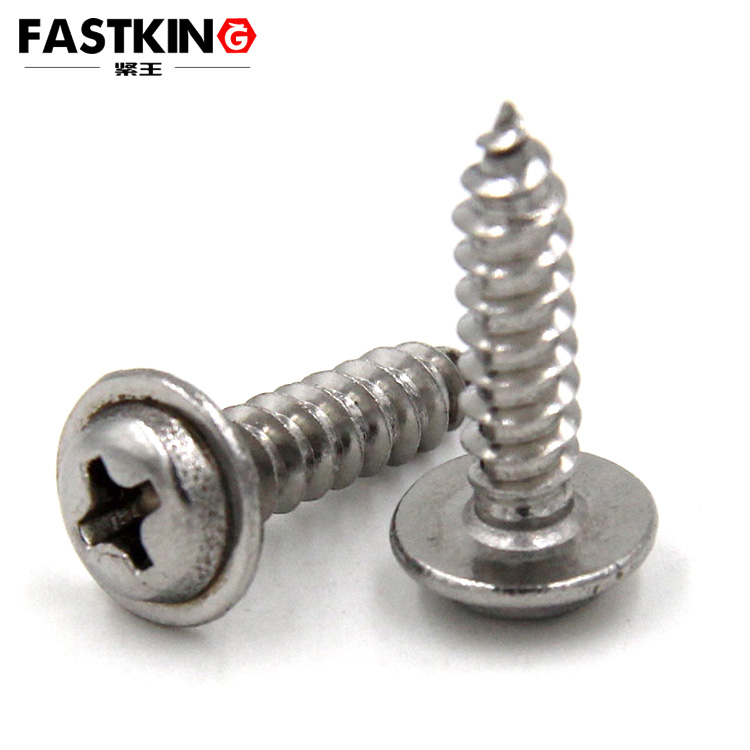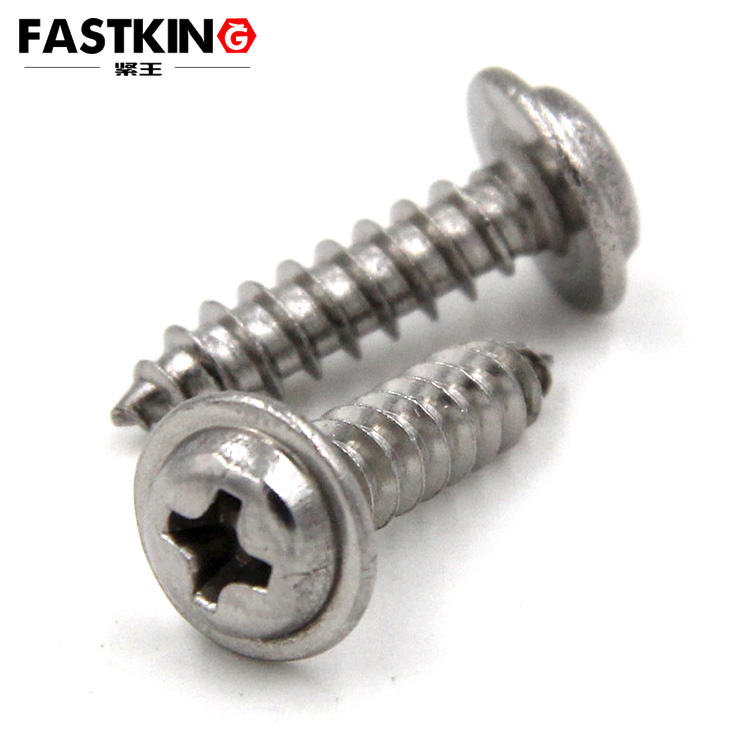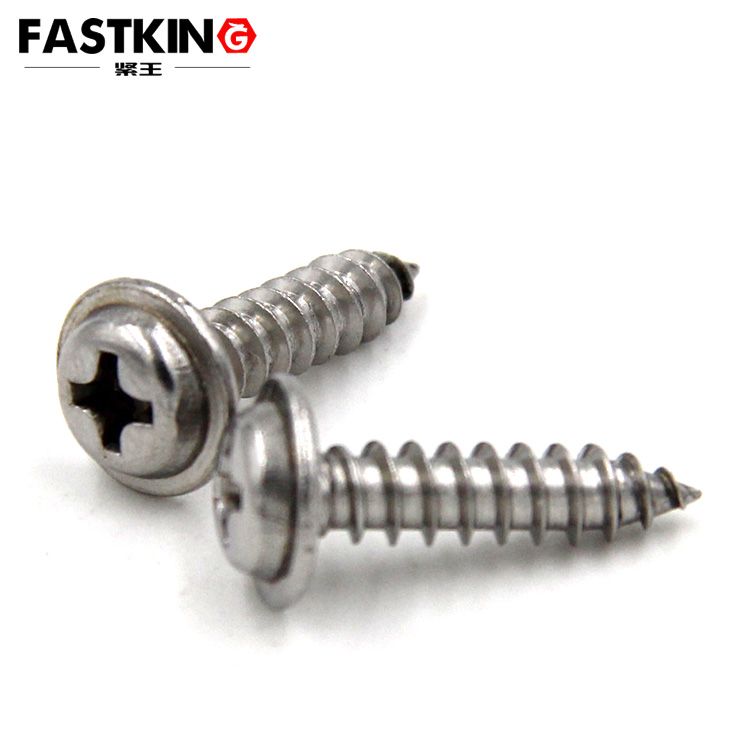Introduction
Round head cross-head self-tapping screws with washer are versatile fasteners that combine the aesthetic appeal of a rounded head, the universal compatibility of a cross-head slot, and the anti-loosening function of an integrated washer. These screws can directly tap into materials without pre-drilling, making them suitable for connecting various materials such as metals, woods, and plastics.

Core Advantages of Round Head Cross-Head Self-Tapping Screws
Made from high-quality carbon steel or stainless steel, these screws undergo heat treatment and surface finishing processes to achieve excellent mechanical properties and corrosion resistance. With a hardness of HRC28-32, they offer sufficient strength and appropriate toughness. The self-tapping thread design allows them to form mating threads directly in pre-drilled holes, significantly simplifying the installation process.
In terms of mechanical performance, round head cross-head self-tapping screws support a maximum strength grade of 8.8, meeting the fastening requirements of most lightweight structures. The integrated washer design effectively distributes the fastening pressure, preventing surface damage to the fastened parts and enhancing anti-loosening performance. The special geometry of the self-tapping threads ensures excellent tapping performance and connection strength.
The screws feature a standard cross-head slot, allowing for easy operation with a common cross-head screwdriver. The unique rounded head design is not only aesthetically pleasing but also prevents scratches, enhancing safety during use. Standardized thread specifications and dimensions ensure good interchangeability and compatibility.
Proper Use of Round Head Cross-Head Self-Tapping Screws

When installing round head cross-head self-tapping screws, ensure that the pre-drilled hole size is appropriate, typically 75-85% of the screw diameter. Choose a suitable cross-head screwdriver that matches the slot perfectly. Apply appropriate axial pressure and rotate at a steady speed to avoid tilting. During tightening, pay attention to torque control and stop when significant resistance is felt to prevent over-tightening and thread damage.
For routine maintenance, regularly inspect the screw's fastening status and retighten if necessary. Check the threads and washer for any damage, and replace the screw promptly if any issues are found. When storing, keep the screws in a dry, ventilated area, avoiding direct sunlight and chemical corrosion.
Common issues include slot damage and stripped threads. These can be identified by visual inspection and checking the fastening status. Damaged screws should be replaced promptly to avoid compromising structural integrity.
Typical Applications of Round Head Cross-Head Self-Tapping Screws

In the field of home appliance manufacturing, round head cross-head self-tapping screws are widely used for assembling the casings of refrigerators, washing machines, air conditioners, and other products. Their convenient installation features significantly improve production efficiency. In construction, they are commonly used for fixing lightweight steel studs, gypsum boards, and decorative panels, meeting the demands of rapid construction.
In automotive manufacturing systems, these screws are used for fixing non-load-bearing components such as interior panels, roof linings, and carpets. Their aesthetic and convenient features are highly favored by manufacturers. In the electronics industry, they are applied in the installation of enclosures, panels, and brackets, providing convenience for equipment assembly.
Conclusion
Round head cross-head self-tapping screws have become a benchmark in the field of lightweight structural fastening due to their outstanding performance and broad applicability. As smart manufacturing continues to evolve, these screws will continue to play a crucial role in emerging fields such as modular construction and smart homes, providing a solid guarantee for rapid assembly.
